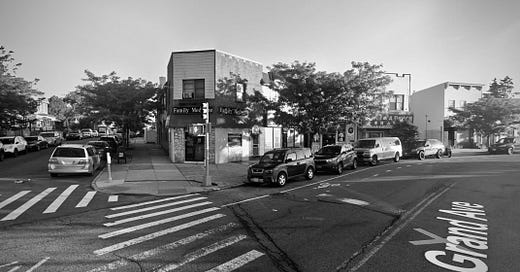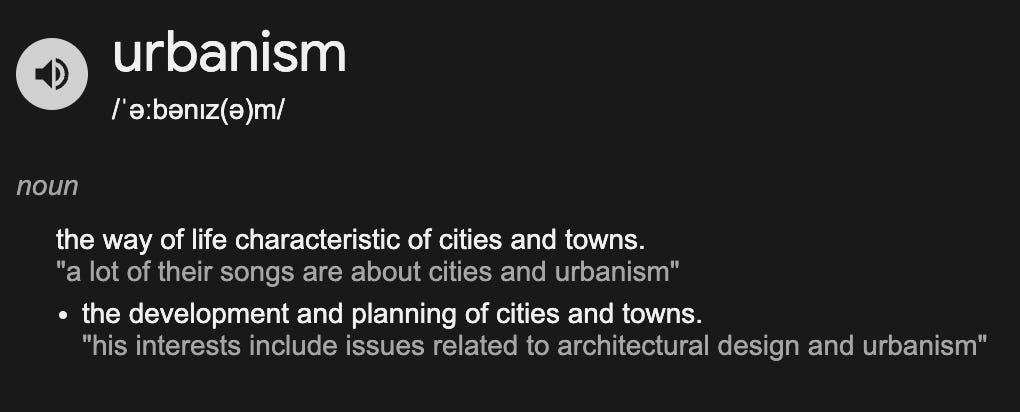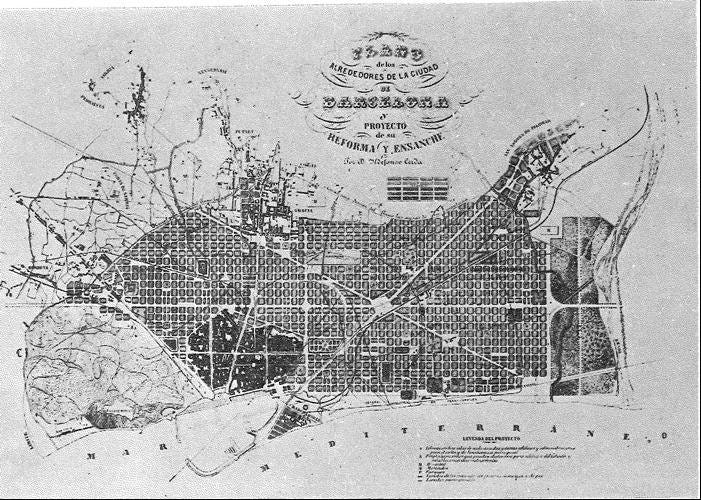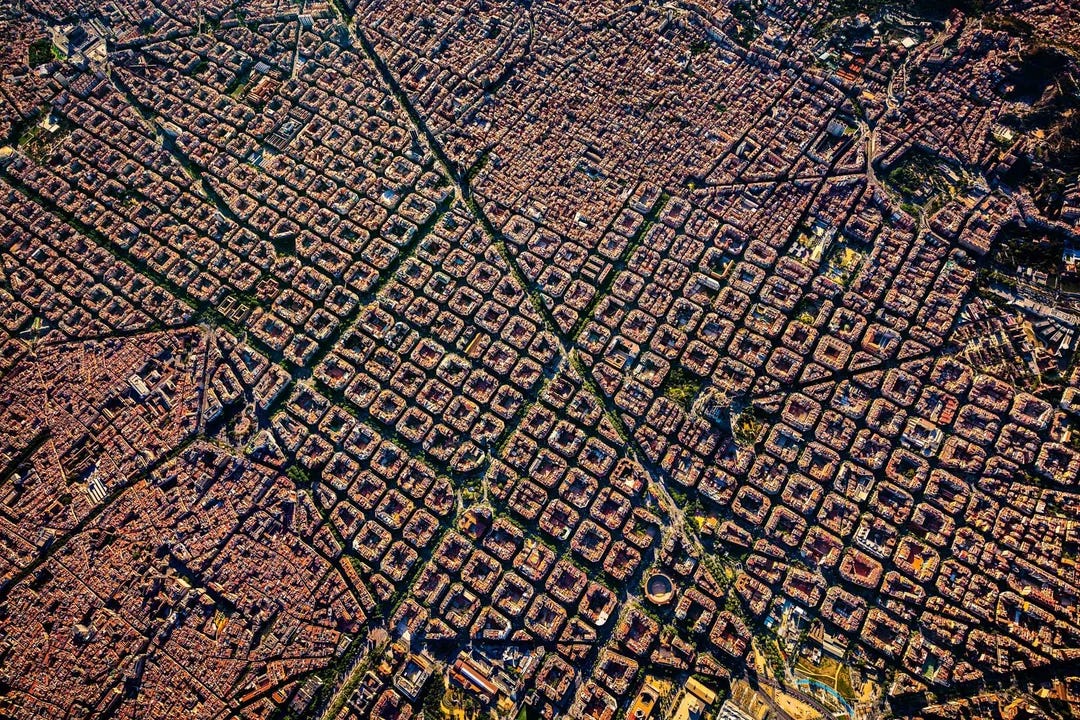Throughout my life, I never knew I was an ‘urbanist’.
What I do remember is always being fond of cities.
In my teenage years, I’d fly to New York to visit my grandma in Queens. It was during these summer visits that I felt this sense of freedom I never felt before. She let me go off on my own and explore. I would take the Q59 bus from Grand Avenue over to the Queens Mall, I remember sitting on the bus observing all the people. I thought it was so cool that they could move about the city without having to use their own cars.
It was such a different way of life compared to what I was used to in suburbia.
In Florida, where I grew up, I relied on my parents for rides.
When I turned 16 and got my driver’s license, I finally had the liberty of getting myself from point A to point B without being a burden on anyone else. This is when I started to realize what an annoyance traffic and commuting can be, and also how costly it is to own a car.
During my years at university, it didn’t bother me much. College towns are dense and most things were nearby, no more than a 15-minute drive. I still got a scooter to avoid the parking fiasco and ensure I always had a close spot.
After graduation, I entered the corporate world. With that came a 90-minute daily commute. This is when I developed an even deeper loathing for traffic and commutes.
My drive to and from work felt so boring and isolating. I dreaded it every single day.
That feeling of being stuck in a bubble, unable to communicate and interact with the outside world was driving me mad. It was around this time I picked up Walkable City by Jeff Speck. This was the book that changed my life. It was my big “ah-ha” moment.
It was the moment I became an urbanist.
The term urbanism was coined in the 1800s by Spanish engineer Ildefons Cerdà.
Cerda was obsessed with the spatial organization of cities. He wanted to transform Barcelona into the city of the future, and he did.
He’s the guy responsible for the famous grid layout seen in aerial photos:
Looking back, it’s no surprise I fell in love with this city.
Barcelona is an urbanist’s paradise.
After my first visit in 2015, I could tell there was something special about this place. I wasn’t exactly sure what it was, but I felt an immediate pull to live here and ever since making the move in 2018, my love for Barcelona has only grown stronger.
I have no formal education in Urban Planning and before moving here I never really paid much attention to how the built environment affects my day-to-day life.
I am an engineer, but not that kind of engineer.
So it was reassuring when I saw
note that the best urbanists are simple plebians like myself:The best, most effective urbanists I know are laypeople who feel…transformed by what they’ve discovered. Who feel that urbanism is a skeleton key for so many of America’s problems: long commutes, soul-crushing traffic, loneliness and isolation for children and the elderly, the deteriorating social lives of adults, family life eaten up by traveling here and traveling there, too much stuff and too little connection, low birth rates, the diminishment of religious faith, a sense of friction and difficulty from everything being so damn spread out and far apart.
Public policy discussion comes after the moment of realization: all of these burdens are a choice, and our current status quo imposes an immeasurable social and emotional tax on everybody, every day, all the time.
The role those of us play in this movement who are communicators—social media posters, advocates, communications staff of small, local urbanist organizations, writers, and journalists—is that of translating the elitism and the wonkery into something intelligible. Of conveying in plain language what we’re talking about.
There still isn’t anywhere near enough of this..
Every now and then, I feel like I’m in an echo chamber.
I spend so much of my free time reading urbanism books, going to Suburbia exhibitions, listening to StrongTowns podcasts, and watching YouTube videos from people like CityNerd and NotJustBikes. But as Addison mentioned, I still don’t think there’s enough discussion around these topics.1
Many Americans know what it’s like to visit a city, but to actually live and work in one, where you don’t need a car, is a different story.
When I moved to Barcelona and started experiencing life here, it became glaringly obvious how big of an impact our physical environment has on our daily lives.
When I’m back in Florida, I’m reminded of the fact that I need a car for everything.
It triggers something inside of me. It’s not normal, it’s not how we were meant to live, and it doesn’t take an expert to see the difference between the quality of life in a walkable place versus a place where we’re forced to drive everywhere.
This is why I started Serendipity Lab. I was transformed by what I discovered after moving away from car-dependent Florida. Now that I’ve experienced what it’s like living in a walkable environment with good social infrastructure, my worldview has been flipped upside down. I could never go back to living in a car-centric place.
In today’s society, where we are constantly glued to our screens and devices, urbanism is a reminder that we are still physical creatures living in the real world.
Until next time my friends.
<3 B
P.S. - If you enjoyed this post, please consider hitting the ❤️ button, it helps get the message out to more people.
If this is a topic you want to delve deeper into, I suggest downloading this Learn Urbanism OS from
over at .









Yesssssssss I SO know what you mean! It wasn’t until I lived downtown in a major global city outside the United States that I became a happier person in general. I realized that I’m happier when I walk — when I’m outside, in the elements, around other people. There’s so much more community when there’s population density and adequate public transit. I became hooked on daily movement and even though I now live in a much smaller Canadian city, I still walk everywhere. I often feel that if more North Americans had this experience so common in Europe and Asia, they wouldn’t have so many issues with depression.
a.k.a. "town mouse" 😀
https://en.wikipedia.org/wiki/The_Town_Mouse_and_the_Country_Mouse